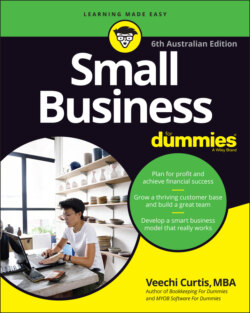Читать книгу Small Business for Dummies - Veechi Curtis - Страница 26
GO BACK TO SCHOOL
ОглавлениеJust as you wouldn’t expect to drive a car without ever having lessons, I recommend that you don’t plunge into a new business venture without any practice or instruction. Instead, check out what courses are available.
Probably the most practical approach is your local TAFE. Although the courses on offer vary from campus to campus, look for a particular small business course that focuses on getting a business started, and which includes formulating your very first business plan.
Similarly, you may find something relevant through your local community college, but be aware that the quality of these courses varies. (Community colleges don’t always stick to curriculums in the same way as TAFEs do, so the quality of their courses depends on the individual tutors, and whether or not the course is working towards a particular certification.)
If business management is what turns you on (and this doesn’t necessarily mean working for yourself), an undergraduate course at university may be your best bet. For example, I completed a joint major in Accounting and Business Management, and the subjects provided a great all-round understanding for all kinds of things.
If you have a university degree under your belt in a different area, a Master of Business Administration (MBA) is another option. But, be aware — while an MBA is an impressive achievement, it isn’t a hugely practical option if you’re thinking of running a small one-person enterprise, because the overall emphasis of such courses is on larger enterprises and organisations, rather than on small business.
